Decomposers
Decomposers are organisms that break down dead organisms and organic matter into simpler substances. They play a crucial role in the ecosystem by recycling nutrients and returning them to the soil, water, and air. Without decomposers, dead organisms and organic waste would accumulate, leading to a buildup of organic matter and depletion of nutrients.
Types of Decomposers
There are several types of decomposers, including:
- Bacteria: Bacteria are single-celled microorganisms that play a significant role in decomposition. They break down organic matter by secreting enzymes that digest complex molecules into simpler compounds.
- Fungi: Fungi, such as mushrooms and molds, are important decomposers in the ecosystem. They secrete enzymes to break down complex organic matter, and their mycelium network helps in the decomposition process.
- Earthworms: Earthworms are examples of decomposers in the soil. They consume organic matter and excrete nutrient-rich castings, contributing to soil fertility.
- Arthropods: Insects and other arthropods also act as decomposers by feeding on dead plants and animals, helping to break down organic matter.
Decomposition Process
The decomposition process involves several stages:
- Fragmentation: Decomposers physically break down organic matter into smaller pieces, increasing the surface area for microbial action.
- Chemical Decomposition: Enzymes released by decomposers chemically break down complex molecules into simpler compounds, such as carbon dioxide, water, and nutrients like nitrogen and phosphorus.
- Nutrient Recycling: Decomposers release nutrients back into the environment, making them available for use by plants and other organisms.
Importance of Decomposers
Decomposers play a crucial role in the ecosystem for the following reasons:
- Recycling nutrients from dead organisms and organic matter
- Enriching the soil with essential nutrients
- Contributing to the balance of the carbon and nitrogen cycles
- Supporting the growth of plants and primary producers
- Remediating environmental pollution by breaking down contaminants
Study Guide
When studying decomposers, consider the following key points:
- Identify the different types of decomposers and their roles in the ecosystem.
- Understand the process of decomposition and the stages involved.
- Explain the importance of decomposers in nutrient cycling and ecosystem sustainability.
- Discuss the ecological and environmental significance of decomposers.
- Explore the interrelationships between decomposers, producers, and consumers in the ecosystem.
By understanding the role of decomposers in the ecosystem, you can appreciate the intricate balance of nature and the interconnectedness of all living organisms.
.◂Biology Worksheets and Study Guides High School. Introduction to animals
Worksheet/Answer key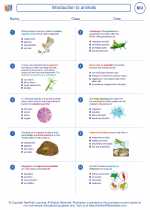 Introduction to animals
Introduction to animals  Worksheet/Answer key
Worksheet/Answer key Introduction to animals
Introduction to animals  Worksheet/Answer key
Worksheet/Answer key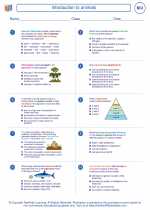 Introduction to animals
Introduction to animals  Worksheet/Answer key
Worksheet/Answer key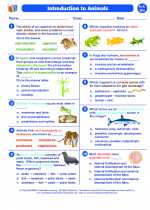 Introduction to animals
Introduction to animals  Vocabulary/Answer key
Vocabulary/Answer key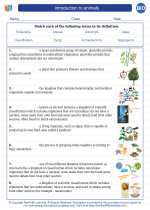 Introduction to animals
Introduction to animals  Vocabulary/Answer key
Vocabulary/Answer key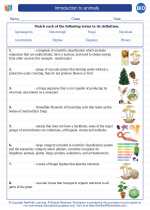 Introduction to animals
Introduction to animals  Vocabulary/Answer key
Vocabulary/Answer key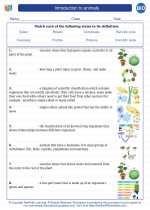 Introduction to animals
Introduction to animals 

 Worksheet/Answer key
Worksheet/Answer key
 Worksheet/Answer key
Worksheet/Answer key
 Worksheet/Answer key
Worksheet/Answer key
 Vocabulary/Answer key
Vocabulary/Answer key
 Vocabulary/Answer key
Vocabulary/Answer key
 Vocabulary/Answer key
Vocabulary/Answer key

The resources above cover the following skills:
Concepts of Life Science (SC1, SC2, SC3)
The student demonstrates an understanding of the structure, function, behavior, development, life cycles, and diversity of living organisms by describing the structure-function relationship